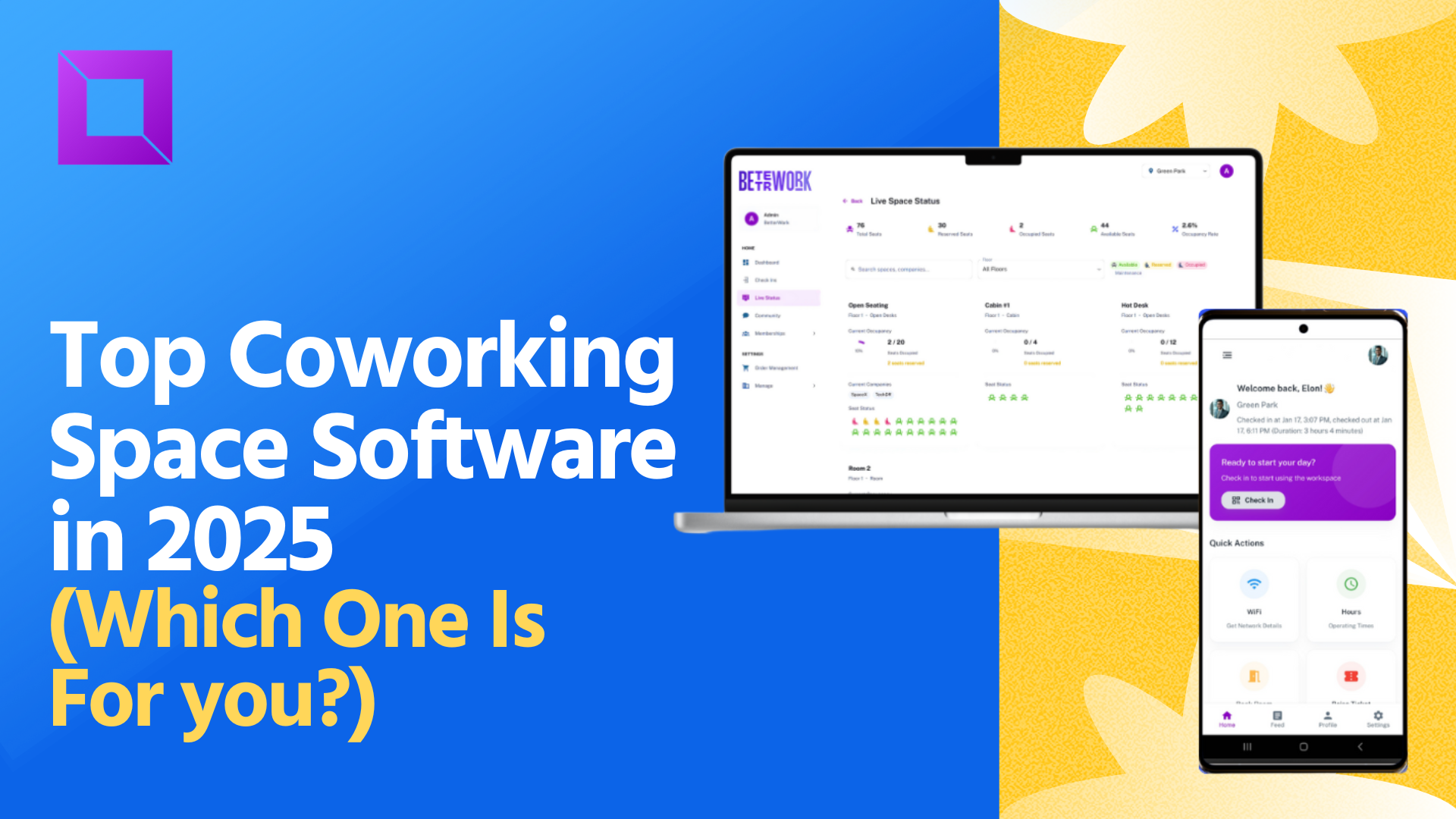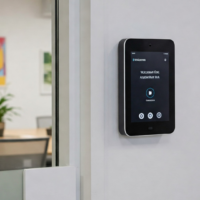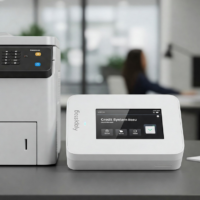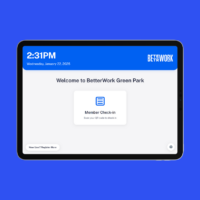The coworking industry has seen remarkable growth over the past decade, with flexibility, scalability, and community-driven workspaces becoming the norm. From freelancers to enterprises, organizations are moving towards shared workspaces, making coworking space management more complex than ever.
Efficient management of coworking spaces requires robust coworking space software that can automate operations, manage bookings, handle memberships, and enhance the overall member experience. The right software can improve productivity, optimize revenue streams, and foster a vibrant coworking community.
In 2025, several coworking space software solutions stand out due to their feature set, ease of use, scalability, and integrations. This blog provides an in-depth comparison of the top coworking space software to help you choose the best one for your needs.
1. DeskOS – The Most Comprehensive Coworking Space Software
DeskOS is a powerhouse in the coworking industry, providing end-to-end management solutions for operators of all sizes. With a highly intuitive interface and advanced automation features, it streamlines operations while delivering a seamless experience for members.
Key Features & Benefits
- Multi-Location Management: Manage multiple coworking spaces from a single dashboard.
- AI-Powered Analytics: Advanced data insights on space utilization, peak usage hours, and revenue trends.
- Smart Access Control: Integration with smart locks, turnstiles, and biometric systems to ensure security.
- Automated Billing & Payments: Seamlessly handle recurring memberships, invoicing, and multiple payment methods.
- Interactive Booking System: Real-time availability for meeting rooms, hot desks, and event spaces.
- White-Label Customization: Custom branding, automated emails, and mobile apps for a tailored experience.
- Community Engagement Tools: Built-in networking features, event management, and discussion forums.
Why Choose DeskOS?
DeskOS is the best all-in-one solution, offering a perfect balance of automation, flexibility, and customization. It is ideal for coworking spaces of all sizes, from small startups to large enterprises, looking for a scalable and future-proof management system.
2. Nexudus – Best for Large-Scale Operations
Nexudus has long been a dominant player in the coworking industry, known for its enterprise-grade capabilities. It provides an advanced level of customization and deep integrations with third-party tools.
Key Features
- CRM & Lead Management: Track leads, automate follow-ups, and optimize conversions.
- Comprehensive Reporting & Analytics: Get in-depth insights into revenue, bookings, and occupancy trends.
- Self-Service Member Portal: Users can manage bookings, payments, and invoices independently.
- Advanced API & Integrations: Seamlessly connect with Slack, QuickBooks, Zapier, and IoT devices.
- Customizable White-Label Solutions: Adaptable branding for personalized user experiences.
3. OfficeRnD – Ideal for Hybrid Workspaces
OfficeRnD bridges the gap between traditional offices and coworking spaces, making it an excellent fit for hybrid work models.
Key Features
- Hybrid Office Scheduling: Enables businesses to manage remote and in-office teams efficiently.
- Custom Workflows: Automate billing, invoicing, and contract management with ease.
- Seamless Member Experience: Integrated mobile apps for check-ins, bookings, and communications.
- Enterprise Integrations: Supports Microsoft Teams, Google Workspace, and Salesforce.
4. Cobot – Best for Small & Mid-Sized Coworking Spaces
Cobot is a lightweight yet powerful coworking space software tailored for smaller operations. It offers essential features without the complexity of enterprise-grade solutions.
Key Features
- User-Friendly Interface: Minimal learning curve, making it easy to set up.
- Automated Invoicing & Payments: Supports various payment gateways, including PayPal and Stripe.
- Community Engagement Features: Member directory, event management, and networking tools.
- Basic Analytics & Reporting: Helps track occupancy and revenue growth.
5. Yardi Kube – A Scalable Solution for Enterprise Spaces
Yardi Kube provides an extensive suite of features designed for enterprise-level coworking operators with a focus on real estate management.
Key Features
- Space Utilization Analytics: AI-driven insights to optimize revenue.
- Security: Cloud-based access control and monitoring.
- Scalable Infrastructure: Best suited for large coworking brands expanding across multiple locations.
Final Thoughts: Choosing the Right Coworking Space Software
Selecting the right coworking space software is essential for streamlining operations, enhancing member experience, and ensuring long-term scalability. The ideal software should efficiently manage bookings, billing, access control, and community engagement while offering automation and data-driven insights. To make an informed decision, consider the following factors:
1. Size and Scale of Your Coworking Space
The features you need will depend on the size of your coworking space. Smaller spaces might benefit from simple, cost-effective solutions that handle basic tasks like booking and invoicing. Mid-sized coworking spaces require more automation and customization to support growing operations. Larger enterprises managing multiple locations will need advanced integrations, AI-driven analytics, and automated workflows for efficient multi-site management.
2. Automation & AI Capabilities
Automation reduces manual tasks, improves efficiency, and enhances financial planning. Software with AI-driven analytics can predict peak usage times, optimize space utilization, and automate billing. Some platforms provide real-time booking optimizations, automated access control, and predictive analytics to help operators make data-driven decisions. For those looking for basic automation, options with predefined workflows for billing, access control, and membership tracking can be sufficient.
3. Budget Considerations
The cost of coworking space software varies significantly based on features, scalability, and customization options. Budget-conscious spaces might opt for affordable solutions that cover core functionalities without unnecessary extras. Mid-range options balance cost and functionality, offering essential automation and integration capabilities. Larger enterprises may require premium software with deep automation, multi-location support, and extensive reporting tools to maximize efficiency.
4. User Experience & Interface
A user-friendly interface plays a crucial role in the daily operations of a coworking space. The software should offer intuitive navigation, seamless booking, and a smooth payment process to enhance the member experience. Some platforms prioritize mobile-first designs, allowing members to manage bookings and payments easily on the go. Others focus on comprehensive dashboard analytics for workspace administrators, which may come with a steeper learning curve.
5. Community Engagement & Networking
Building a strong coworking community can increase member retention and overall workspace value. Some software solutions include networking tools, event management, and discussion forums to help members connect, collaborate, and engage. For corporate or hybrid workspaces, certain platforms provide engagement tools tailored for companies using coworking spaces as flexible office solutions.
6. Customization & Branding
Brand identity is an important factor for coworking space operators who want their software to reflect their unique identity. White-label solutions allow for customization of the member portal, emails, booking interface, and mobile apps to match branding requirements. While some platforms offer complete branding control, others come with predefined templates that provide limited customization.
Making the Right Choice
The best coworking space software depends on your operational needs, budget, and growth plans. Whether you’re managing a small, mid-sized, or large coworking space, selecting software that aligns with your business objectives will help you optimize operations, improve member experience, and scale effectively.
By evaluating your space size, automation needs, budget, integration requirements, and customization preferences, you can choose a solution that enhances efficiency, fosters community engagement, and maximizes profitability.
DeskOS emerges as the top choice for its versatility, automation, and scalability, making it an ideal solution for 2025. However, each software listed here caters to specific business needs, so choose the one that aligns with your goals.





